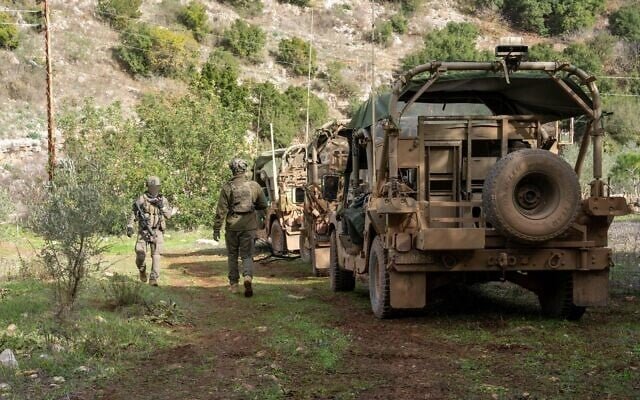The main US negotiator of the fledgling ceasefire agreement between Israel and Hezbollah will reportedly travel to Beirut next week ahead of the deal’s stipulated withdrawal of Israeli troops from southern Lebanon.
Amos Hochstein’s visit — reported by Channel 12 news and the Lebanese ad-Diyar newspaper — will come as Israel has cited an uptick in Hezbollah violations of the ceasefire agreement, which is supposed to see the terror group withdraw its forces north of the Litani River, some 18 miles from the Israel-Lebanon border.
The Israel Defense Forces on Thursday evening said fighter jets carried out an airstrike in southern Lebanon, targeting medium-range rocket launchers at a Hezbollah post. Another rocket launcher next to the Hezbollah site in the Iqlim al-Tuffah area, in the Nabatieh District, was also struck, the military added.
The IDF said that in line with the ceasefire agreement between Israel and Lebanon, Israel first sent a request to the Lebanese Armed Forces to neutralize the launchers and only moved to strike them after the request wasn’t handled by Lebanon’s military.
It was not clear whether the IDF also updated the enforcement committee — made up of representatives from the US, France, the UN, Israel and Lebanon — that is supposed to adjudicate allegations of ceasefire violations in real time.
The IDF has targeted Hezbollah sites over a dozen times since the ceasefire went into force on November 27 for alleged violations, often waiting very little time before launching strikes while maintaining that the enforcement committee has yet to be fully established. A US official denied as much to The Times of Israel last week, insisting that the panel is operational.
The agreement stipulates that the IDF cede its positions in south Lebanon to the LAF in the 60 days following its signing. With the late January deadline approaching, Hochstein’s visit is meant to ensure a smooth transition, according to Channel 12.
The report in ad-Diyar said Hochstein will arrive in Beirut on Monday, in what will likely be his farewell tour, with the Biden administration’s time in office ending on January 20.
Defense Minister Israel Katz meanwhile has directed the IDF to prepare for a potential escalation between Israel and Hezbollah. A military source told The Times of Israel last month that the IDF was also gearing up for the possibility that troops will have to stay beyond the 60-day period if the Lebanese army does not complete its deployment in south Lebanon.
While such a scenario would surely test the agreement, the source said it was not a given and that it it were to occur, the ceasefire deal would not necessarily collapse.
Israel hopes that with the ceasefire, the roughly 60,000 residents who evacuated from their homes in the country’s north due to persistent Hezbollah rocket fire over the past year will return. Most have yet to do so, though, and the IDF estimates that will remain the case until at least the end of February.
The ceasefire came two months after Israel invaded southern Lebanon and ramped up airstrikes against Hezbollah, all but decimating the terror group’s leadership.
Unprovoked, Hezbollah began attacking Israel on a near-daily basis on October 8, 2023 — a day after fellow Iran-backed terror group Hamas launched a thousands-strong attack on southern Israel in which some 1,200 people were killed and 251 taken hostage, sparking the war in Gaza.
